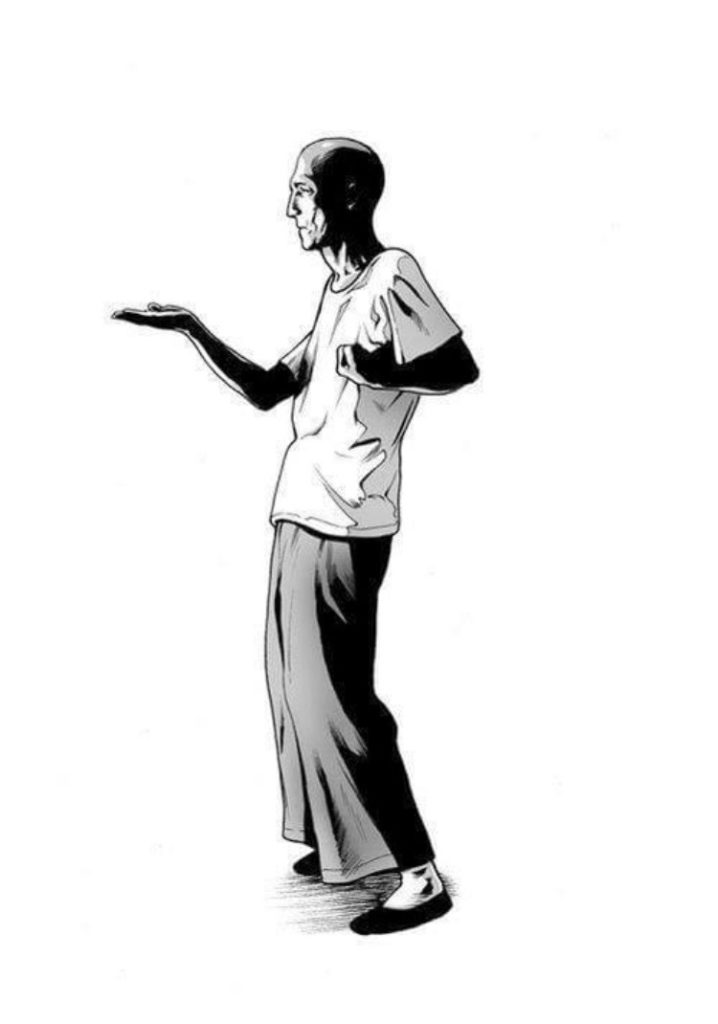Another piece of advice I received from my Sifu was to be lighter than your partner. Being “lighter” meaning that your partner cannot feel your arms. They therefore they can’t anticipate your movements either. There’s a number of implications to having a lighter touch in terms of chi sau in Wing Chun.
Just last evening I was running through a lap sau drill with a beginner. I noticed he was using a lot of tension in his lapping hand after the technique had been executed. Once I pointed it out to him, he quickly relaxed his grip. This may seem like a minor point, but in chi sau these “leeks” of your energy will show up to a partner who is more relaxed and “lighter”. They can then capitalise on your movements because they are much easier to anticipate and read.

In dan chi sau too, this is an important thing to notice. Dan chi sau, or single sticking hand, is a drill to help you with sensitivity and not to over commit. But again, it’s worth noticing any “leakage” of energy coming from your partner, after the attack and defence has been performed. This can be observed simply by “listening” (through your arm) to the contact point once an attack has been neutralised. Usually there’s still some tension at the contact point. Often, if you let it go completely, your partner’s arm will move in the direction of their overcommitment.
It’s these small, unconscious movements and “leakages” which can be observed in drills such as pak sau, dan chi sau, poon sau and lap sau. By paying attention to them in the simpler drills, you can begin to notice similar leakages of energy/intention in your chi sau practice.
Being Lighter Than Your Partner
If both partners have these leakages of energy, neither will notice the overcommitments of their partner, since they will be too busy attempting to attack. But if one partner is lighter than the other, they will have an advantage because they can more easily read their partner.
Another scenario in which this is apparent, is with a single hand change over, when changing from tan to a fok sau, in a single hand drill. When your partner pushes against your tan sau, attempting to force your position down, you can quickly change into a fok sau. Or you can of course resist, using energy to maintain the position. This is known as a change and is used in the poon sau (rolling arms) exercise.

Poon Sau – Rolling Arms
When you’re lighter than your partner, and they attempt to push downwards to instigate a change, you can easily read their intention. If you are in the midst of considering your own attack, or trying to move their arm, you won’t notice the force, at least not as easily/quickly. It is this observational skill, through the sensitivity of your arms, which can give you a massive advantage. Not only can you notice pressures more easily and quickly, but you can also notice overcommitments and capitalise on them.
If your partner over commits on a change, by pushing down or sidewards too forcefully, a quick change would mean they over commit. This leaves a massive gap, for you to strike down. Conversely, if you don’t change as quickly (or at all), your resistance slows down their overcommitment, or stops it. So no gap appears.
As Napoleon Bonaparte said, “never interrupt your enemy when he is making a mistake”!
Being lighter in your arms than your partner means you can observe much more clearly what they are doing. This is especially useful when they over commit or use too much energy.
How To “Listen” With Your Arms
When you’re learning chi sau, you may not always be “listening”. This might be because you’re looking for ways to attack and break through your partner’s defences. However, there’s huge value in being light. Being light in your arms allows you to notice more of your partners mistakes. Whereas if you’re busy “looking” for attacks/techniques you can easily miss opportunities which come up spontaneously.
To integrate this idea into your chi sau game it’s worth simply defending for some time. Stop attacking, and just defend. Notice the small conflicts with your partner where your energies clash. Start removing these conflicts and you’ll notice they are “opportunities”!
It is often the “noise” we have in our own chi sau game which interferes with our improvement. When you’re busy attacking all the time, you don’t have the inner space available to notice what’s going on in these tiny moments of time. Give yourself that space by simply defending and dropping attacks completely from your chi sau game for a few months. Just observe the small conflicts and start to remove them, using relaxation and by bringing more awareness into your game.
See also my last post stop using your reach.
See also the maxims of Wing Chun.


